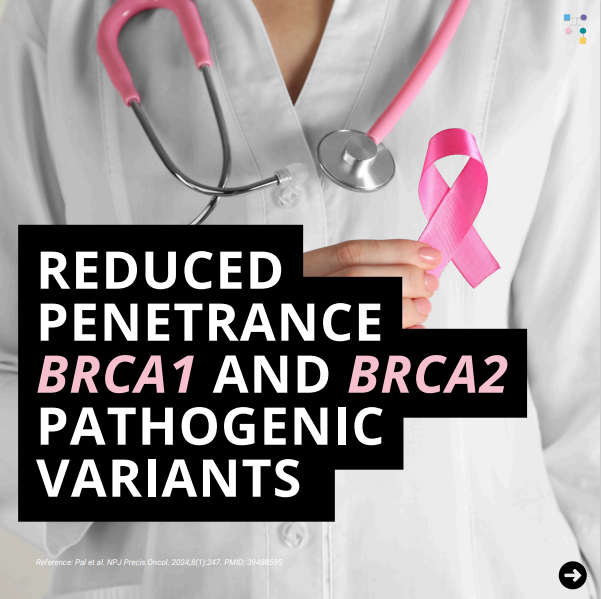
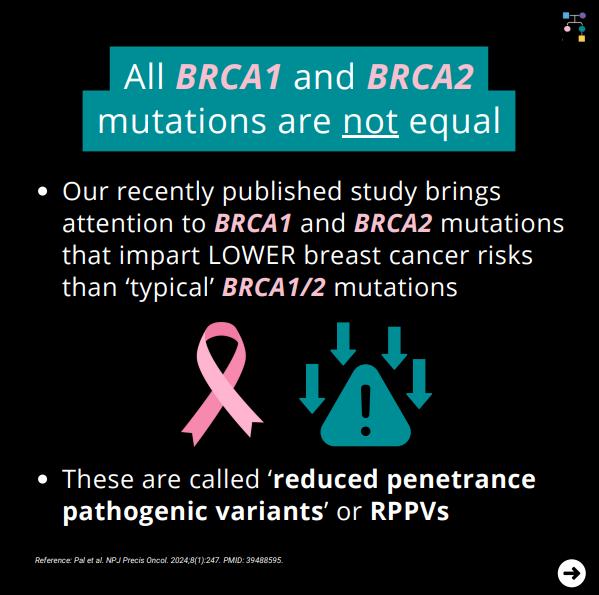
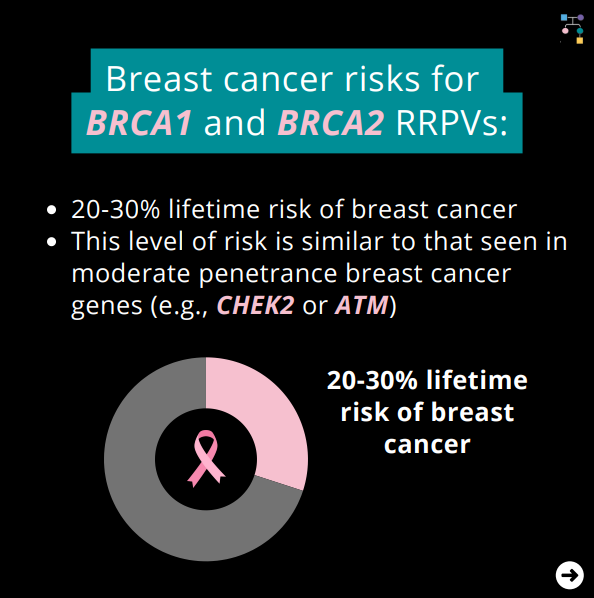
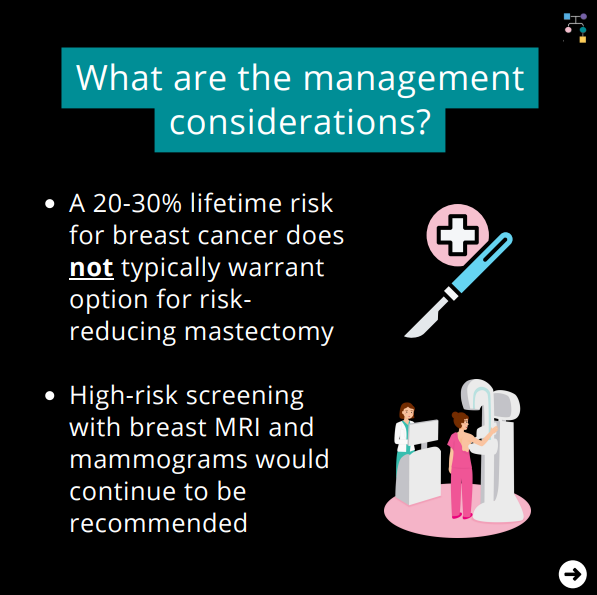
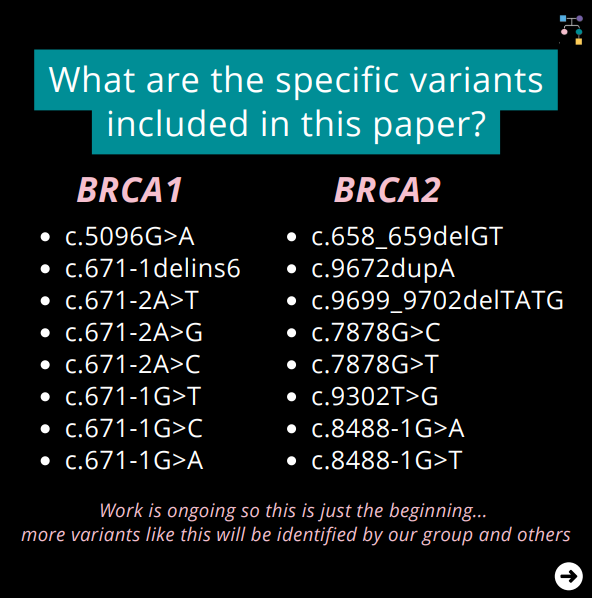
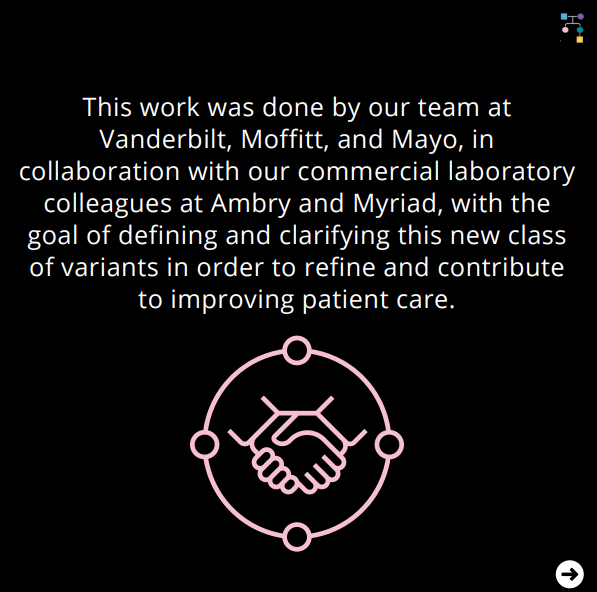

Check out our recently published study that brings attention to “reduced penetrance” BRCA1 and BRCA2 (BRCA) pathogenic variants, which impart LOWER breast cancer risks than ‘typical’ BRCA mutations. Specifically, lifetime breast cancer risks for these reduced penetrance BRCA variants are 20-30% which is similar to that seen in moderate penetrance breast cancer genes (e.g., CHEK2 or ATM).
What are the management considerations?
- A 20-30% lifetime risk for breast cancer does not typically warrant option for risk-reducing mastectomy
- High-risk screening with breast MRI and mammograms would continue to be recommended
What are the specific variants included in this paper?
- BRCA1: c.5096G>A; c.671-1delins6; c.671-2A>T; c.671-2A>G; c.671-2A>C; c.671-1G>T; c.671-1G>C; c.671-1G>A
- BRCA2: c.658_659delGT; c.9672dupA; c.9699_9702delTATG; c.7878G>C; c.7878G>T; c.9302T>G; c.8488-1G>A; c.8488-1G>T
Please note work is ongoing so this is just the beginning… more variants like this will be identified by our group and others.
This work was done by our team at Vanderbilt, Moffitt, and Mayo, in collaboration with our commercial laboratory colleagues at Ambry and Myriad, with the goal of defining and clarifying this new class of variants, with the goal of refining and contributing to improving patient care.
To learn more, read the full article at: https://tinyurl.com/BRCAreducedpenetrancevariants
Reference: Pal et al. NPJ Precis Oncol. 2024;8(1):247. PMID: 39488595.
